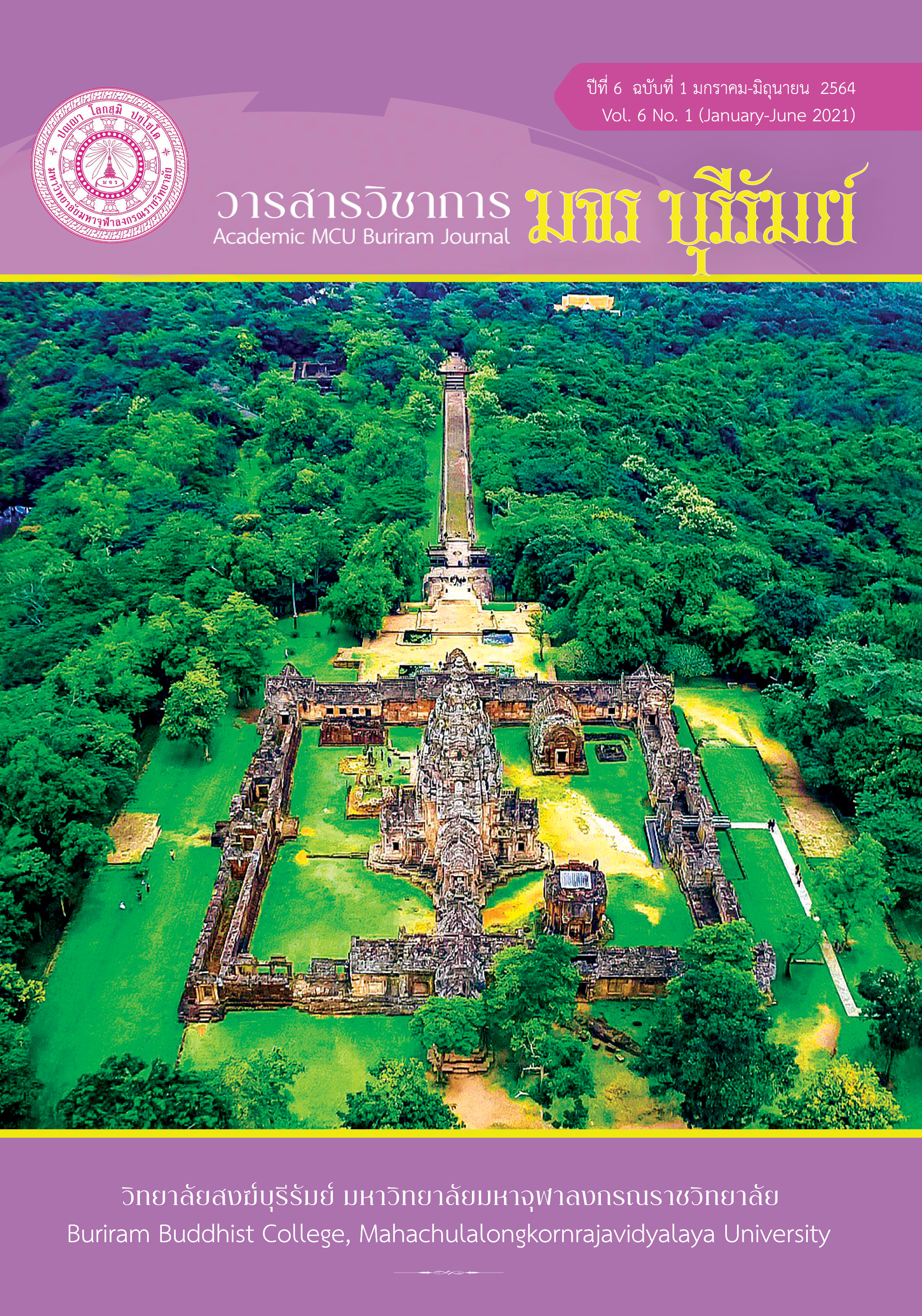Guidelines for the Promotion of Bun Khao Ji of Thungkula Sub-district Community, Suwannapumi District, Roi-Et Province
Keywords:
Tradition, Ceremony, Bun Khao JiAbstract
This article consisted of the following objectives: 1) to study the background of Bun Khao Ji tradition in Theravada Buddhism; 2) to study the arrangement of Bun Khao Ji tradition of Thung Kula sub-district community, Suvarnabhumi district, Roi Et province; and 3) to present a guideline for the promotion of Bun Khao Ji tradition of Thung Kula sub-district community, Suvarnabhumi district, Roi Et province. The study was a qualitative research by means of documentary research and in-depth interview with the key informants. The acquired data were analyzed, synthesized, and summarized to get the research results for presentation.
The research result finds that:
The main reason that Isan villagers perform the Bun Khao Ji tradition on the 3rd month is because it is the period where they do not have duty on farming. The villagers will take the newly harvested rice from the barn for offering to the monks through Bun Khai Ji tradition as a way for merit-making. The villagers fully recognize the virtues of such offering; therefore, the tradition has been passed down from their ancestors to the present.
Regards to the problem on the arrangement of Bun Khao Ji tradition of Thung Kula subdistrict community in the present, it was found the following problems: public relations, procedures and schedules, operation, dissemination of knowledge.
From studying a guideline for the promotion of Bun Khao Ji tradition of Thung Kula subdistrict community, Suvarnabhumi district, Roi Et province, it was found that Bun Khao Ji tradition is integrated with the community, society, organizations, and related agencies in order to promote the tradition. The guideline is divided into two ways, the first is a guideline for promotion through roles and duties, both directly and indirectly, in the following dimensions: society, politics, Buddhism, cultures, tourism, communication, education, economy, the way of life, public mind, and health. All of which are based on roles and duties which will result in the driving process for the promotion of Bun Khao Ji tradition in a common network manner. The second way is a guideline through a cultural dimension, that is, cultures, morals, and Dhamma, by which each part functions together in promoting Bun Khao Ji tradition of Thung Kula subdistrict community in an efficient manner.
References
มหาจุฬาลงกรณราชวิทยาลัย. (2539). พระไตรปิฎกภาษาไทยฉบับมหาจุฬาลงกรณราชวิทยาลัย. กรุงเทพมหานคร: โรงพิมพ์มหาจุฬาลงกรณราชวิทยาลัย.
กรมการศาสนากระทรวงวัฒนธรรม. (2552). พิธีกรรมและประเพณี. กรุงเทพฯ: โรงพิมพ์ชุมนุมสหกรณ์การเกษตรแห่งประเทศไทยจำกัด.
สาร สาระทัศนานันท์. (2534). ฮีตสิบสอง – คลองสิบสี่. เลย: เมืองเลยการพิมพ์.
สีลา วีรวงศ์. (2529). ฮีตสิบสอง. อุบลราชธานี: ศูนย์ศิลปวัฒนธรรมอุบลราชธานี.
อภิศักดิ์ โสมอินทร์. (2534). โลกทัศน์อีสาน. กาฬสินธุ์: โรงพิมพ์ประสานการพิมพ์.
สุเนตร การงาน. (2540). ประเพณีบุญกุ้มข้าวใหญ่และบุญข้าวจี่บ้านหนองกุง ตำบลเสือโก้ก อำเภอวาปีปทุม จังหวัดมหาสารคาม. วิทยานิพนธ์ศิลปศาสตรมหาบัณฑิต. บัณฑิตวิทยาลัย: มหาวิทยาลัยมหาสารคาม.
Downloads
Published
How to Cite
Issue
Section
License
ทัศนะและความคิดเห็นที่ปรากฏในบทความวารสารฉบับนี้ถือเป็นความรับผิดชอบของผู้เขียนบทความนั้น ไม่ถือเป็นทัศนะและความรับผิดชอบของบรรณาธิการ





